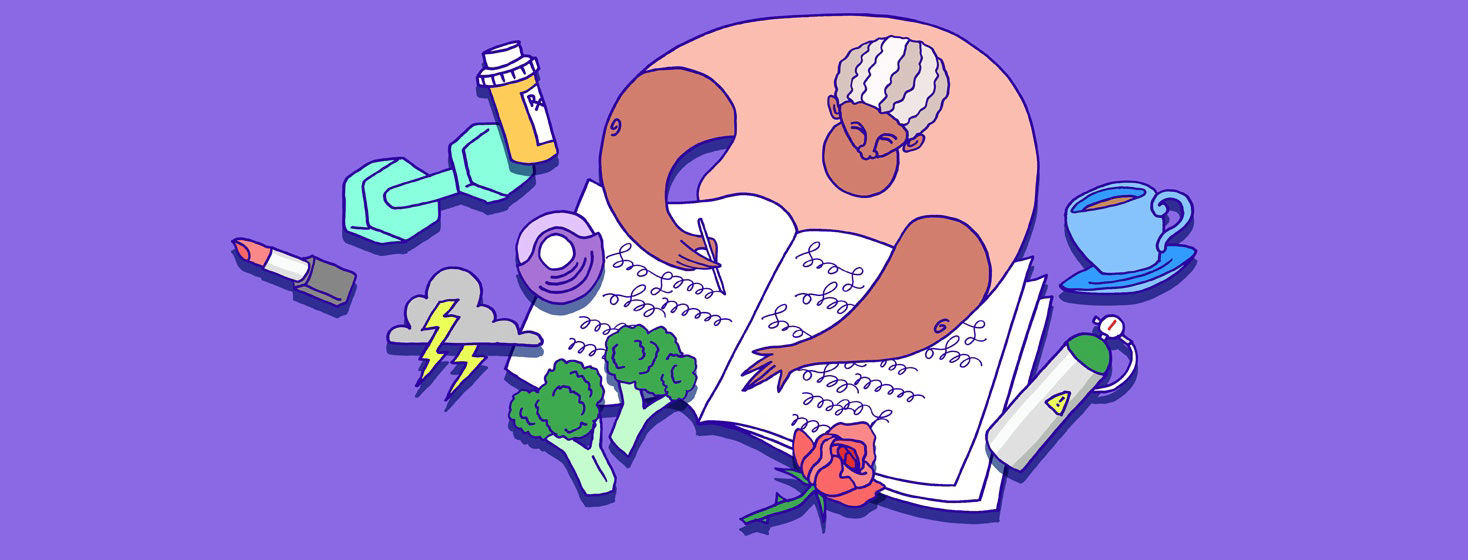Lessons Learned in COPD Management
COPD comes with many symptoms, not just shortness of breath. It took some time to figure this out, learn which ones affect me, and how to manage them. I feel these are the most important lessons I have learned in the past seven years.
Doctors
They are human and have stressful jobs. Patients want instant fixes when they probably aren't available. Patients want instant answers when they usually aren't available either without testing.
I've learned to go to the doctor prepared by writing down my questions. If I don't ask, he can't answer. He is not a mind reader. If I have symptoms, I let him know. I've learned my doctor respects me being knowledgeable, as long as that knowledge comes from reputable sources. Doctor Google is not one of them.
Many doctor offices have websites with patient portals. This will show you your medications, summary of doctor visits, lab results, and upcoming appointments. I make use of it before a visit by going through all pertinent information making sure it is current, or after a visit to make sure I understood everything.
Exercise
If you follow any of my articles, then you already know I do not like to exercise. I never have and I don't see that changing in the future. However, I know it is very necessary for any quality of life. It is medicine and that is how I view it.
Routines that work for me
Through a lot of trial and error, and sometimes cost, I found routines that work for me. I learned not to compare my exercise capability to anyone else. Most of us belong to support groups and it is easy to do.
I'm Stage 4 and that person is Stage 4, why can't I walk 5 miles like them? That was the most difficult to understand. We are all different and were before our diagnoses. Perhaps that person used to be an athlete. I never was. I have to remember, we experience this disease differently, not just physically, but mentally and emotionally.
Health tracker journal
Not fancy
This is such an important tool. I would not have the knowledge of my symptoms without it. It also is for my doctor when there is a problem, particularly if you are dealing with multiple illnesses. I have learned so much over the years by keeping a daily track of symptoms, including good days. I don't keep a fancy one, while others enjoy that. Mine are scribbled in my daily calendar book.
Weather and sleep
I track the weather by temperature, humidity, dew point, and air quality. It helped me understand days I was short of breath more than others. Now I can use this information in planning my week.
I track my sleep. By doing this I learned my breathing is affected if I get less than six hours of sleep at a minimum, preferably seven to eight. Keeping track of my diet also showed me which foods were causing issues for me. I am diabetic, so it is important for that disease as well.
Living in the now
This is the most difficult to learn and is always an ongoing lesson. Concentrating on the present moment helps to relieve anxiety. If I only concentrate on my breakfast in the morning, I won't be getting worried about getting out of breath in the shower I will be taking shortly. If I focus on my breathing during the shower, using all the lessons I have learned, I won't be worrying about the rest of the day ahead. One moment at a time, breathe in, pursed lips, breathe out slowly.
Other tools
Gratitude and mental activity
Each morning, I write down three things I am grateful for. I have gone through periods of not doing it and I notice a change in my mental health. They are not big things. They are the simple things that bring me joy on a daily basis.
Keeping mentally active is important to me. I have hobbies and think it is important to find activities that keep life interesting.
More than COPD
Most importantly, I've learned not to make my life all about COPD. If so, it ends up dominating not just my own thoughts, but also conversations with my husband and friends. The idea of learning to manage my symptoms is to have a better quality of life. It should only take a portion of my time, not all of it.
How do you manage your daily COPD routine? Do you have any ideas to help others in the community?
Editor's Note: We are heartbroken to share that Carol passed away in February of 2022. Carol's storytelling and advocacy will be deeply missed, but her legacy lives on through her articles and in all the people she inspired.

Join the conversation